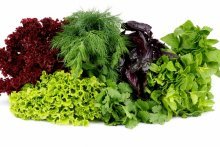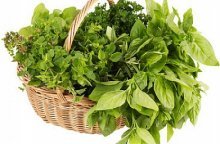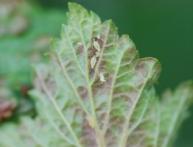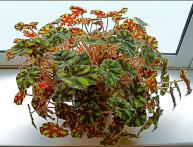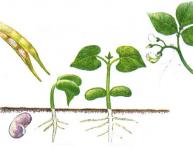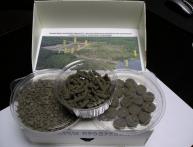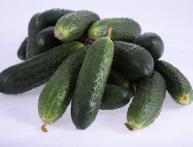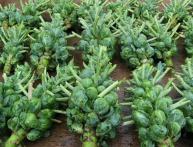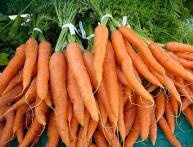Spicy herbs on the windowsill: growing methods
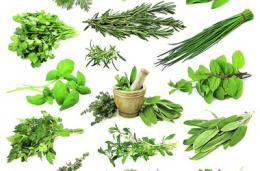
Spicy herbs can be easily grown at home, even in winter, if you know the subtleties and features of cultivation. An excellent place to grow would be the kitchen.
There is humid air here, which is excellent for growing herbs. Plants can be used for their intended purpose and replenish vitamins, which are so lacking in winter.
Content:
- What can you grow from spices on the windowsill?
- How to grow spices correctly
- Rules for caring for herbs
What can you grow from spices on the windowsill?
There is a huge selection of spices that can be consumed not only as food, but also used as medicine. You can grow some types of aromatic herbs in your kitchen.
Basil. Belongs to the mint family of herbs, tastes sweet, and is common in Italian cuisine. Thanks to its beautiful green and purple leaves, you can create a different flower arrangement on the windowsill.
Thyme. This is a Bogorodskaya herb from the Lamiaceae family. It has a pleasant aroma, reminiscent of cumin or anise, with a bitter taste. Can be added to tea and drinks, used in baking and in the preparation of various dishes.
Parsley. It is used as a flavoring seasoning for meat and vegetable dishes, as well as in the preparation of soups.
Rosemary. Fresh rosemary sprigs are used for marinating and frying meat dishes. Rosemary does not lose its pleasant smell even during heat treatment.
Dill.Both individual shoots and the entire plant are used as a seasoning. It has a pronounced smell and great taste. After sowing the seeds, the harvest can be harvested after 3 weeks.
Mint. Peppermint is used mainly for medicinal purposes for preparing various teas and drinks, medicinal decoctions and infusions. Spearmint has found its use in cooking. Fresh leaves are added to soups and salads. It gives meat and seafood dishes a unique aroma and taste. It loves moisture and light, so you should carefully select the place to place it.
Sage. Fresh leaves of the plant complement various potato, chicken and meat dishes well.
Coriander. Known by another name - cilantro. Coriander improves taste and gives dishes a woody, sweetish aroma. The beneficial properties of the plant enrich food with vitamins.
Leaf mustard. It can be consumed raw or after heat treatment. It does not lose its beneficial properties. It is grown in the same way as watercress.
Watercress. Contains many useful substances for the human body. Eat salad raw. It does not require special care. Can be grown in soil or water, in a dark or light place.
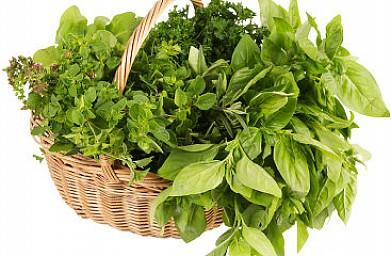
Most herbs usually use only the aboveground part of the plant, while some only use the flowers and seeds. Only 2-3 species (calamus, coluria, gravilate) use roots and rhizomes for food.
These herbs are widely used in various cuisines around the world. They are added to salads, soups, and cold dishes. Plants also have a calming effect and have healing properties.
How to grow spices correctly
about the arrival of autumn frosts take a few plants in the garden and plant in pots or small wooden boxes. You should choose healthy and developed plants without any damage to the root system.
This method of growing is fraught with danger, since diseases and pests can be transferred along with the roots, which will spread to nearby flowering indoor plants.
When replanting, be sure to wash the root part of the plants with special green soap (add 100 ml of soap per 5 liters of water).
The size of the pot should be several centimeters wider than the root ball itself. If this requirement is not met, the roots will not cope with moisture and will begin to rot.
You can also use seeds for growing, which can be purchased in specialized stores. It is best to choose seeds of early varieties.
Almost all herbs need nutritious, loose soil with good drainage.
It is preferable to buy soil in a store designed specifically for vegetable crops. It is not recommended to use garden soil. The soil for growing must be broken down with compost.
There must be gravel or expanded clay at the bottom. You can also add dry hydrogel (1/4 of the substrate). After planting and watering the seeds, the hydrogel will swell. Thanks to this additive, you can reduce the number of waterings.
Dill, white mustard, and lettuce should be sown on the surface of slightly moist soil. To grow onions you will need warm, settled water. Place a small onion in a container of water and wait the first green arrows. Water the onions as needed.
Before sowing parsley, the seeds should be left in a container with water for a day. This is done to volatilize the essential oils contained in the seeds.Parsley is a moisture-loving plant, so it needs to be watered every day.
If basil is sown using seeds, the herb will germinate for a long time and slowly. It is recommended to plant seedlings.
Watercress can be grown not only in soil mixture, but also using paper towels. The seeds should be sown close to each other.
You can use aromatic herbs grown on the windowsill in the following ways: make a sachet, prepare vinegar or oil, etc. To make sachets, mix dried various herbs and place them in cotton bags.
Herbs can be easily frozen in sealed bags.
Spiced oil or vinegar can be added to a variety of dishes. To prepare them, you need to mix fresh herbs with oil or vinegar and then strain. Place fresh herbs in the bottom of a clean bottle and pour in the prepared oil or vinegar.
Rules for caring for herbs
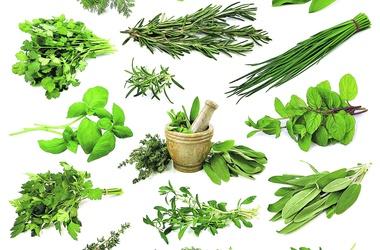
Before purchasing, be sure to pay attention to the expiration date of the seeds.
Herbs are quite light-loving plants, so you should carefully choose the place to place them. If the stems of plants are elongated, it means they do not have enough light. If there is a lack of light, use phytolamps or fluorescent tube lamps.
Be sure to use a drainage layer that will protect the root system and ensure water drainage.
Water your herb pots no more than once a week. A certain plant requires special watering. If the leaves of the plant turn yellow, this indicates excess moisture.
When trying to flower, do not be afraid to cut off the inflorescences. To grow the vegetative mass, fertilizing should be done once every 2 months.It is better to use organic fertilizers that nourish the plants, provide recovery after replanting and enrich the soil. It is not recommended to exceed the dosage. It is necessary to fertilize according to the instructions.
Herbs should be trimmed regularly to help them grow better. Periodically ventilate the room where the plants are located. Some types of herbs are quite sensitive to oxygen in the air.
Growing aromatic herbs can become a hobby for lovers of cooking and indoor plants. If you follow simple rules and put in a little effort, you can get a good harvest of herbs.
Spicy herbs on the windowsill
Interesting information about the vegetable garden

